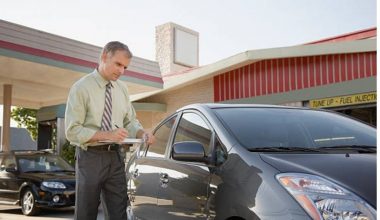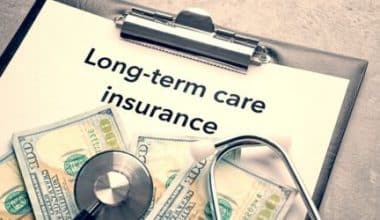General liability insurance coverage defends your company from a wide range of potential claims. Such as bodily harm, loss of property, intellectual property infringement, reputation damage, and marketing injury. Therefore, we’ll be looking at general liability insurance coverage for commercial, what it is, for small businesses, contractors, and definitions.
General Liability Insurance Coverage
A typical claim is a physical damage caused by your business. If someone is hurt at your place of business. Then a general liability policy will pay their medical expenses. Moreover, a simple fall by a consumer at the firm store or business office could result in a bodily injury claim.
Another common liability claim is for property damage. If a person’s property is harm while visiting your establishment, you may be held legally liable. Property damage claims might also cover damage to a client’s house or other property while on business. However, this coverage may also extend to electronic data damage.
Copyright infringement claims arise when you are suspected of using someone else’s work without their consent in your business ad or other commercial marketing.
In addition, you may suffer reputational injury if you say something negative about another company owner or organization in a press interview.
Advertising harm can occur when your firm disparages another individual, business owner, or company.
These sorts of liability issues are common, so you’ll want to protect your company. Moreover, Settling a claim on your own might be highly costly if you do not have general liability insurance. Hence, the average cost of a slip and fall claim, for instance, is $20,000. According to The Hartford, if someone presses charges against you for reputational damage, you will pay $50,000 in legal fees. Consequently, you would have to pay for a costly claim or lawsuit on your own if you did not have general liability insurance.
How Much General Liability Insurance Coverage Do I Require?
According to Insureon, most small businesses prefer conventional coverage limits of $1 million per event. As well as a $2 million aggregate policy limit for their general liability insurance coverage. Thus, this sort of policy will pay up to $1 million for one general liability insurance claim, with a policy term limit of $2 million. Usually, the policy duration is one year.
If you see yourself with a claim. Your general liability insurance will cover the expense of the claim up to the limits of your coverage. However, you must first pay a deductible. A deductible is an amount you must pay toward a claim before the insurance company will begin to pay. When you purchase general liability insurance, you select a deductible amount.
The cost of general liability insurance coverage varies according to the size of your company. Plus your industry, your location, and the amount of coverage you require.
According to Hiscox, general liability insurance normally costs $30 per month or less.
However, you can keep general liability insurance coverage costs under control by selecting the policy limits that best suit your needs. Meanwhile, Your insurance limit is the maximum amount that the insurer will pay for a single claim or all claims made throughout the policy period. Therefore, selecting these limits carefully will help you save money on insurance.
Commercial General Liability Insurance Coverage
Commercial General Liability Insurance coverage protects your company from financial loss. That is if you are found accountable for property damage or personal and advertising injury. As a result of your services, business activities, or employees. Moreover, It covers negligent acts committed by non-professionals. Knowing the scope of this coverage is a critical first step in controlling commercial general liability risks.
Here are a few instances of situations in which your company could be held liable for a variety of expenditures. Including medical and legal fees, and also compensation damages:
- A customer gets hurt after tripping on loose flooring while visiting your establishment.
- An worker in your painting or construction company keeps the water running by accident, causing significant damage to a customer’s home.
- A class action complaint has been filed against your company, alleging that advertisements contained false information.
What does commercial general liability insurance cover?
A commercial general liability insurance coverage policy will often pay the expenses of your legal defense. As well as all damages if you are liable—up to the policy limits. Because of the detrimental effect that a lawsuit can have on a corporation and the frequency with which such liability cases occur. Commercial general liability coverage is one of the most significant insurance products. Conventional CGL coverage includes
#1. Insurance for Bodily Injury and Property Damage
Bodily injury and property damage coverage protects against losses resulting from insured’s legal liability. For bodily injury and property to others originating from non-professional carelessness or liability deriving from their premises or activities of the company. Though in the absence of tangible bodily harm, mental injuries and emotional discomfort can be recognized as bodily injuries.
Employees’ compensation and hiring practices liability insurance are not part of it but can be acquired separately. Furthermore, pollution liability omits and might add as an endorsement. This coverage, however, is quite restricted, and high-risk organizations should consider acquiring a separate environmental liability policy. Additional risks such as liquor liability, professional liability, and other risks may also be in exclusion. Moreover, an insurance professional can assist you in determining which endorsements are appropriate for your type of business.
#2. Private and advertising injury Coverage
Private and advertising injury liability protects an insured from responsibility originating from specific offenses such as:
- Libel
- Slander
- Arrest without warrant
- Infringing on another’s intellectual property rights
- Persecution for malice
- Using someone else’s advertising concept
- Inappropriate eviction, entry, or violation of privacy
#3. Healthcare Payments
Payments for injuries incurred by a non-employee as a result of an accident occurring on the insurer’s premises. Or while exposure to the insurer’s business operations is covered under limited coverage for healthcare payments. Moreover, healthcare payment coverage can be activated without the need for legal action. This allows for the fast resolution of minor medical claims without the need for litigation.
Furthermore, It is in the CGL insurance and pays for all reasonably necessary medical, surgical, ambulance, hospital, professional nursing, and burial expenditures. All for a person wounded or killed in an accident that occurs on the insured’s premises or as a result of company operations. Because coverage is offered on a no-fault basis, there is no defense or legal liability coverage. Just as there is for bodily injury and property damage and private and advertising responsibility.
General Liability Insurance Coverage For Small Business
Liability general insurance coverage for small businesses helps cover claims for bodily injury, property damage, and advertising errors. This involves assisting with the payment of:
Settlements reached outside of the courtroom, Lawsuits, and Medical expenditures
Small business liability insurance is also general liability insurance. The specific amount of company liability insurance coverage you require is determined by the size of your business activities, your industry, and several other criteria.
Is your company in need of more small business general liability insurance coverage?
liability general insurance coverage for small businesses is included in a Business Owner’s Policy (BOP). Moreover, BOP contains 3 coverages in a single, convenient policy:
Commercial property insurance protects your company’s physical address and infrastructure. Furthermore, when you have coverage, it doesn’t matter whether you own or lease your commercial property. Hence, if a fire damages your company’s computers, this can assist pay the expense of replacing them.
General liability insurance assists in the coverage of physical injury and property damage claims. Moreover, If your worker damages a client’s window while working at their home, this can help pay their repair costs. It can also help cover claims for personal or advertising injury.
Business income insurance covers your business’s lost income if you are unable to open due to a covered loss. For instance, if a natural disaster occurs during a storm and destroys your building, this can assist replace your lost income while it is being repaired.
General Liability Insurance Coverage For Contractors
Construction businesses and contractors face significant risks, from carpenters to general contractors. General liability insurance coverage assists in the payment of expenses incurred as a result of third-party injuries and property damage.
General liability insurance coverage for contractors can cover health fees or the cost of repairs if a guest is injured on your worksite. Or property destruction takes place during a renovation, for example. This policy provides liability coverage for the following:
- Injuries to customers
- Damage to customer property
- Slander and defamation
- Liability for defective products
Find out how these coverages protect your company in the sections below.
#1. Injuries to customers
If a client trips over a toolbox or a ladder while you’re working on an electrical or carpentry project, you could be held liable. Unfortunately, if the person sues, you may be forced to pay for medical and legal expenses. below are what general liability insurance covers.
Lawyer’s fees
Court-ordered verdicts
Settlements
Medical expenditures
Funeral costs in tragic accidents
Worker injuries are not covered under this policy. However, You will need to obtain workers’ compensation insurance for this.
#2. Damage to customer property
Builders and contractors can incur significant costs as a result of accidents. When customer property is harmed, general liability insurance coverage protects small businesses.
For instance, if a client’s furniture is broken during remodeling, your general liability insurance coverage for contractors’ policy may cover the cost of repair or replacement. Moreover, this policy may also cover the expense of a lawsuit if a customer press charges you for property damage.
#3. Slander and defamation
It is easy to mistakenly imitate a competitor’s slogan or imitate another advertising campaign while promoting your company and its building services. General liability insurance covers accidental advertising injuries, such as:
Infringement on intellectual property
Defamation, including both written libel and slander (spoken)
#4. Insurance for product liability
Product liability insurance, also known as products-completed operations coverage, should be included in construction businesses’ and contractors’ general liability policies. This insurance covers your company if your final work causes bodily harm or property damage as a result of improper workmanship.
Assume a plumber installs a new sink in a kitchen. Two weeks later, the homeowner realizes that the sink has flooded, causing significant damage to their pricey kitchen floor. Moreover, if the client files a lawsuit because of the defective installation, this coverage will help pay the plumber’s legal fees.
What Does a General Liability Policy Not Cover?
Although general liability insurance for businesses doesn’t cover everything, it does cover a lot. It excludes coverage for business-related auto accidents, employee illnesses, and injuries, property damage, errors made by professionals, claims that exceed your policy limit, and unlawful conduct committed by you or your workers.
Is General Liability Full Coverage?
When you’re driving, your liability-only auto insurance will pay for any injuries or damage to other people’s property or automobiles. Liability insurance and additional protection against damage to your own car are both included in full-coverage policies. You must have a certain level of liability insurance in most states.
What Is the Difference Between General and Liability Insurance?
Physical hazards such as physical harm and property damage are covered by general liability. Professional liability insurance protects against more speculative risks like mistakes and omissions in the work your company does.
Do I Need Both General and Professional Liability Insurance?
Yes, you do require both types of insurance if you have both types of risks. Additionally, it’s possible for an employer or customer to stipulate in your contract that you must carry both general liability and professional liability insurance.
What Is the Purpose of General Insurance?
General insurance enables us to shield our houses, automobiles, and other precious possessions from the financial effects of both major and little dangers, including theft, car accidents, travel misfortunes, and even the costs of legal action brought against us.
Do I Need Insurance To Have My Own Business?
If your company interacts with the general public, whether on your property or somewhere else, public liability insurance is an important factor to take into account. You may be shielded from third-party compensation claims for harm or loss brought forth by clients, customers, suppliers, or other parties.
Do You Need Insurance To Run a Business?
Every company with employees is required by federal law to have workers’ compensation, unemployment, and disability insurance. Additionally, some states demand supplementary insurance. Visit the webpage for your state to learn more about the insurance needs for your business as they differ by state.
Conclusion
The general liability insurance coverage defends your company from a wide range of potential claims, such as bodily harm, loss of property, intellectual property infringement, reputation damage, and marketing injury.
General liability insurance coverage FAQ’s
What is covered under a general liability policy?
General liability insurance policies typically cover you and your company for claims involving bodily injuries and property damage resulting from your products, services, or operations. It may also cover you if you are held liable for damages to your landlord’s property.
Is general liability insurance the same as public liability?
General Liability Insurance is usually another name for Public Liability Insurance. However, some insurers may use it to refer to different types of cover. We’ve already explained how Public Liability Insurance is often bundled with Product Liability Insurance.
What is not covered in business insurance?
Losses from certain types of natural disasters, floods, and other major weather events may not be covered by standard commercial property insurance policies. The same applies to customers’ property that is stored at your business.
- General Liability Insurance Policy: For Businesses
- What is Liability Insurance: Types and Coverages for Your Business
- GENERAL LIABILITY INSURANCE: Coverage and Quotes for Your Business
- Business General Liability Insurance: Best Quotes and Coverages
- WORKERS COMPENSATION: Benefits, process & claims in UK
- Business General Liability Insurance Cost: Factors That Limit Its Cost
- BEST UMBRELLA INSURANCE: 2022 Best Umbrella Insurance Options






